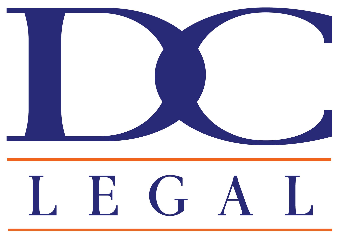Defending Washington State Judicial Foreclosures
Judicial foreclosure is the exclusive method of foreclosing a straight mortgage as well as, although infrequently utilized, an option to foreclose statutory deeds of trust and real estate contracts. 18 Washington Practice, Real Estate § 19.1 (2d ed.). Judicial foreclosure is advantageous in cases involving a deed of trust when the beneficiary (lender) is seeking a deficiency judgment; when the party in default has assets to collect from, judicial foreclosure allows for a deficiency judgment whereas non-judicial foreclosure does not.
Washington State Judicial Foreclosure Process
The process involves filing a lawsuit to obtain a court order to foreclose and is used when no power of sale is present in the mortgage or deed of trust or upon the election of the debt holding. After the court declares a foreclosure, the property will be auctioned off to the highest bidder.
Defensive tactics that can be applied during judicial foreclosure proceedings.
- Challenging perfection of the chain of title, and;
- Challenging the validity of the beneficiary when that party is not the holder of the promissory note.
I. Chain of Title Defense
One possible foreclosure defense tactic is to challenge the perfection of the chain of title. In order for there to be “perfection” of the chain of title, there must be an unbroken, continuous record of ownership of the promissory note from the time it is sold until the present.
Currently, there have been some issues with the relatively new model for the recordation of mortgage documents called the ‘Mortgage Electronic Registration System’ Inc. (MERS). MERS is a private electronic recording company that tracks the ownership of said notes and was intended to “reduce the costs, increase the efficiency, and facilitate the securitization of mortgages and thus increase liquidity.” Bain v. Metropolitan Mortgage Group, Inc., 175 Wn.2d 83, 285 P.3d 34. During the lifetime of the mortgage/deed of trust, MERS tracks ownership interests and that mortgage/deed can be transferred between several MERS members (e.g. “Fannie Mae” and “Freddie Mac”). Id at 95. Problems can arise with multiple transfers with maintaining a clear and consistent chain of title. As a result of multiple transfers, MERS is vulnerable to recording errors, and broken links in the chain can be identified, it can nullify the ability to make a claim on the property.
II. Challenging the Validity of the Beneficiary Instigating Foreclosure Proceedings
In Bain, the court held that, according to the Deed of Trust Act, only the party actually holding the promissory note may be considered a beneficiary. Bain at 89. Consequently, if MERS does not actually hold the note, which it most likely does not, it is not a lawful beneficiary. The court in Bain states that “obligation and mortgage cannot be split, meaning that the person who can foreclose the mortgage must be the one to whom the obligation is due.” Id. at 97 (quoting 18 Stoebuck; Weaver § 18.18, at 334). Simply put, the note and the deed must be together. Given that many deeds are securitized, it is very likely that the party seeking foreclosure is not in possession of the note and, therefore, legally unenforceable. Additionally, when a deed has been securitized, a defense tactic is to argue that “once a loan has been securitized, or converted to stock, it is no longer a loan and cannot be converted back into a loan. That means that your promissory note no longer exists, as such. And if that is true, then your mortgage or deed of trust is no longer securing anything.”
Have questions regarding the foreclosure process? Contact one of our Kirkland foreclosure attorneys.







